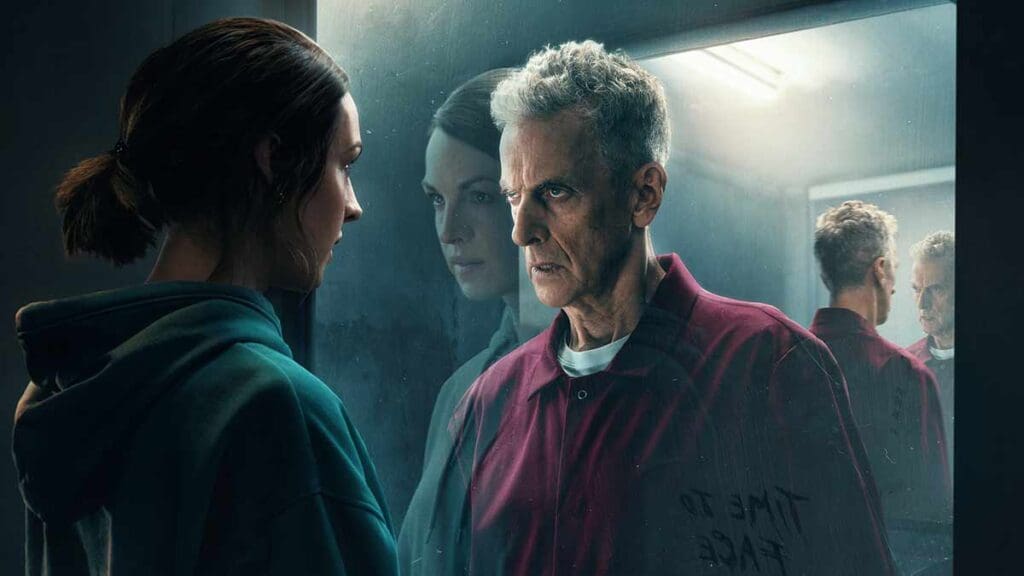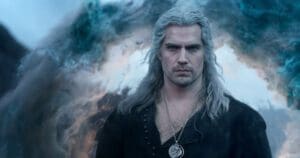We discuss why does Isaac show no emotion in the Prime Video series The Devil’s Hour, and so it will contain spoilers. Let’s dive into why Isaac might be emotionless.
One of the main mysteries in The Devil’s Hour revolves around the character of Isaac (Benjamin Chivers), Lucy’s (Jessica Raine) strange and troubled son. Isaac appears to no show emotion, repeats back everything that his mother says to him, and seems to talk to people that just aren’t there. Isaac is emotionless. The creepy child is a horror trope that has been done to death, but here, the subplot takes on new meaning and explores new grounds. The writers manage to formulate a few possible reasons for Isaac’s emotionless state, but also leave it open for interpretation, like all great mysteries. So, let’s discuss why Isaac is this way.
Why does Isaac show no emotion in The Devil’s Hour?
Throughout The Devil’s Hour, Isaac tells his mother that he sees people in the house and that he can communicate with them. Isaac has always had imaginary friends, but the idea of people being in Lucy’s house really unnerves her. She has Isaac taken to multiple psychiatrists, but none of them can seem to come to one succinct conclusion. Only adding to Lucy’s despair, Isaac is completely emotionless. He doesn’t show any signs of any emotions at all, never smiling, laughing, crying or even feeling pain. Lucy’s mother Sylvia said that he didn’t cry when he was born. Whilst at school, he is bullied into slapping himself across the face until he bleeds, but never once shows signs of pain, fear or anger and never once sheds a single, solitary tear.
The psychiatrists throw around ideas of autism and schizophrenia but never settle on a definitive answer. The latest therapist, Dr. Ruby Bennett seems to be making good progress, but she never actually solves Isaac’s problems either. I have my theories on why Isaac is emotionless, and so does Gideon, played by Peter Capaldi in the series. In The Devil’s Hour ending, he explains his complex history and how he can remember his past lives. He lays out his theory about Isaac to Lucy in an interrogation room.
To explain Gideon’s theory, we need to explore his backstory first. Gideon states that when he dies, he starts the same life over and over again, but that he can remember the previous ones. Gideon became obsessed with altering the future and used his powers to try and save people’s lives. Whenever he saved a life, take, for example, the girl Evelyn; afterward, they were forever altered. Evelyn would then go on to see people that weren’t there, what Gideon calls ripples. These ripples are of previous lives, a bit like ghosts roaming the same space. They caused Evelyn to be admitted to a psychiatric hospital, where Gideon would later save her. Isaac could be seeing these same visions of other lives.
He talked about an imaginary friend called Meredith and we eventually get to meet her, living down the road. In another life, Meredith lived in the exact same house. Isaac has visions where he sees Meredith’s family strolling around the house. The idea of a child seeing ghosts is one way to explain why Isaac may have become so cold, absolutely petrified by these apparitions, but Isaac never seems to be that scared. He just watches and observes.
Gideon goes on to say that he saved Sylvia’s life and in turn completely altered Lucy’s future. Only in this current timeline does Lucy marry Mike and give birth to Isaac. He therefore calls Isaac an anomaly, someone who is not supposed to exist. Gideon thinks this is why he is devoid of emotions, he has no spirit or soul. He came from nothing and he will return to nothing. He is devoid of life and love, he won’t ever love or feel joy. Ouch!
Lucy is rightfully offended by this verbal assault and fights back, stating that he does love. And it is true, as the series progresses we see tiny glimmers of hope as Isaac starts to develop emotions. He smiles from time to time and he even hugs his mother at one point. Gideon may be right about how Isaac began his life, but Lucy has slowly managed to change Isaac and has brought out the dormant emotional side to him over time.
This unemotional childhood of Isaac could also be his father’s fault. The way Mike treats his son is truly awful. He bullies and belittles him and near the end, comes close to physical abuse. Mike talks about how having a child ruined his life and as Isaac grew up, that lack of an emotional connection caused them to separate further apart. Mike needed a child to love him, and Isaac needed a father to love him. It was a stalemate of sorts. Mike couldn’t love the blank canvas that was Isaac, and Isaac couldn’t grow without a father figure to show him how to show his own emotions. When Ravi enters the household, Isaac starts to open up more, he smiles at Ravi’s jokes and copies their elaborate handshake. He then starts to laugh and says that he loves his mother.
Maybe Isaac needed a strong male role model in his life and was unable to grow emotionally because of Mike’s detached parenting style. Of course, Lucy tries her damnedest and is the most loving mother to Isaac. But maybe he needed both parents’ support. Overall, it could be a mixture of all of the above. Isaac’s odd upbringing, this anomaly theory, and something psychological too.
What do you think? Why do you believe that Isaac shows no emotion in The Devil’s Hour? Please leave your theories below.



